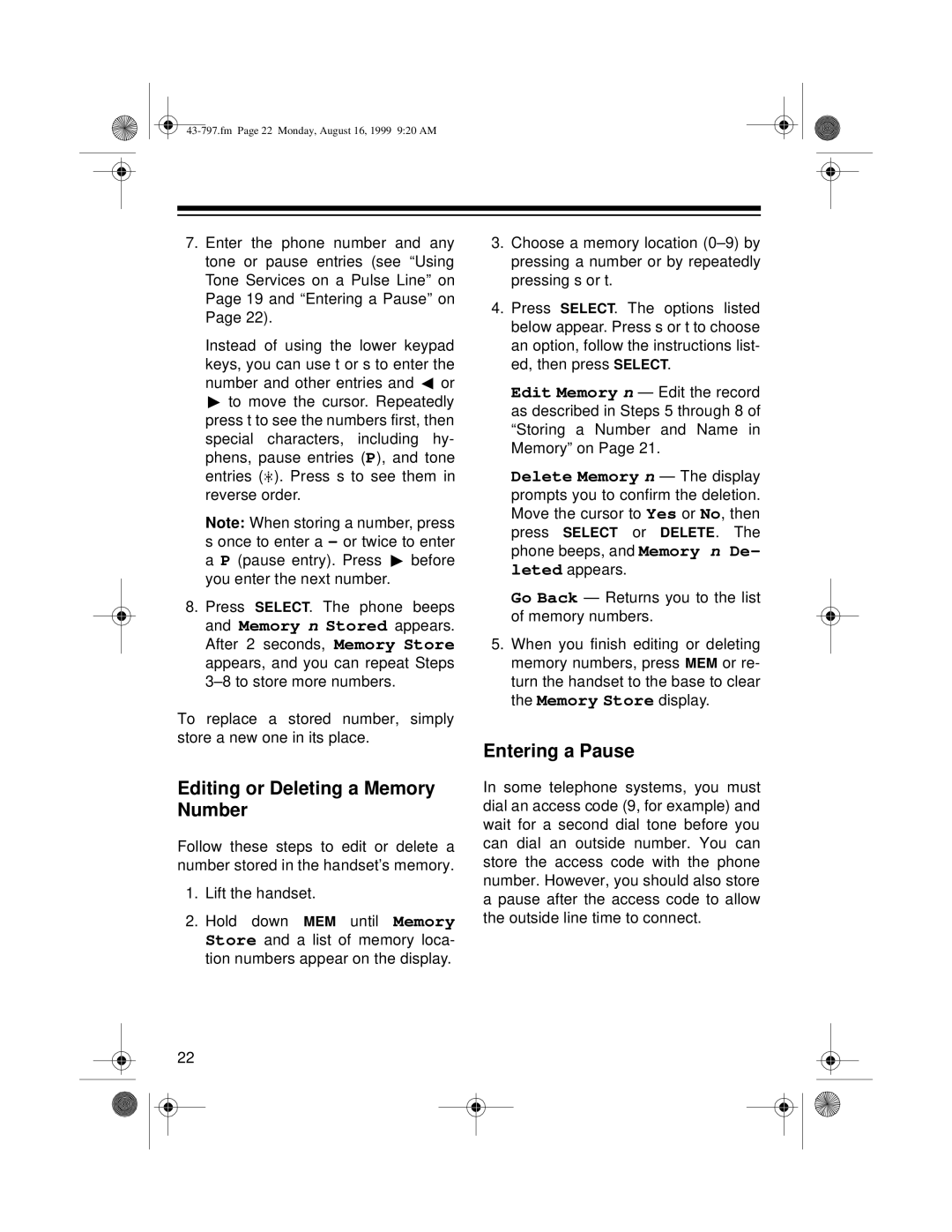
7.Enter the phone number and any tone or pause entries (see “Using Tone Services on a Pulse Line” on Page 19 and “Entering a Pause” on Page 22).
Instead of using the lower keypad keys, you can use t or s to enter the number and other entries and ![]() or
or ![]() to move the cursor. Repeatedly press t to see the numbers first, then special characters, including hy- phens, pause entries (P), and tone entries (
to move the cursor. Repeatedly press t to see the numbers first, then special characters, including hy- phens, pause entries (P), and tone entries ( ![]()
![]()
![]()
![]()
![]() ). Press s to see them in reverse order.
). Press s to see them in reverse order.
Note: When storing a number, press s once to enter a - or twice to enter a P (pause entry). Press ![]() before you enter the next number.
before you enter the next number.
8.Press SELECT. The phone beeps and Memory n Stored appears. After 2 seconds, Memory Store appears, and you can repeat Steps
To replace a stored number, simply store a new one in its place.
Editing or Deleting a Memory Number
Follow these steps to edit or delete a number stored in the handset’s memory.
1.Lift the handset.
2.Hold down MEM until Memory Store and a list of memory loca- tion numbers appear on the display.
22
3.Choose a memory location
4.Press SELECT. The options listed below appear. Press s or t to choose an option, follow the instructions list- ed, then press SELECT.
Edit Memory n — Edit the record as described in Steps 5 through 8 of “Storing a Number and Name in Memory” on Page 21.
Delete Memory n — The display prompts you to confirm the deletion. Move the cursor to Yes or No, then press SELECT or DELETE. The phone beeps, and Memory n De- leted appears.
Go Back — Returns you to the list of memory numbers.
5.When you finish editing or deleting memory numbers, press MEM or re- turn the handset to the base to clear the Memory Store display.
Entering a Pause
In some telephone systems, you must dial an access code (9, for example) and wait for a second dial tone before you can dial an outside number. You can store the access code with the phone number. However, you should also store a pause after the access code to allow the outside line time to connect.
